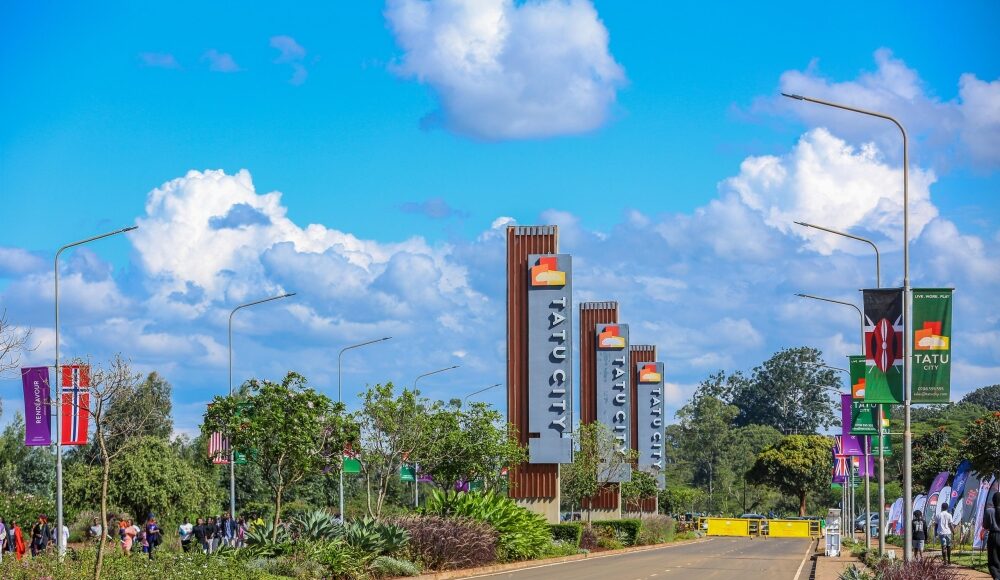NAIROBI, May 7 — To many, Tatu City on the outskirts of Nairobi looks like a success.
The first city in East Africa to be fully built by a private company, it now houses some 25,000 residents and workers and accounts for around two-thirds of all foreign investment in Kenya.
Its low-tax status has drawn more than 100 businesses, including Heineken, coffee brand Dormans, and the region’s largest call-centre and cold-chain transport firms.
But to some local politicians, Tatu City has appeared more like a target for extortion.
According to its owners, successive governors have demanded land worth millions of dollars in exchange for building permits.
A few years ago, one governor allegedly “drove around with us, just pointing at different plots of land, saying ‘I want that, I want that’,” said Preston Mendenhall, Kenya country head for Rendeavour, the company developing the city.
Mendenhall responded with a rarely used tactic in Kenya — going public.
On multiple occasions, he has held press conferences to expose what he describes as extortion attempts by local politicians.
“They thought that we, as foreign investors, would leave the country,” he said.
“But we’re looking at a 50-year time horizon. For us to challenge somebody, if need be in public, who is trying to extort us… we believe that’s the right thing to do.”
Last year, Mendenhall publicly accused local governor Kimani Wamatangi of demanding 22 hectares of Tatu City land, valued at US$33 million, free of charge.
Wamatangi, who did not respond to AFP’s request for comment, denied the accusation.
It is a risky approach.
“I’m subject to four defamation cases. It’s their intimidation tactic and they’re used to getting what they want,” said Mendenhall.
“But the first case goes back to 2015 and we haven’t had a hearing yet, so I’m not too worried.”
The long game seems to be working.
The first governor who targeted the project, Ferdinand Waititu, is now in prison over a separate corruption case.
Wamatangi was arrested last month by anti-corruption officers who found US$13,000 in cash at his home, also in an unrelated investigation.
‘World-class facilities’
Meanwhile, Tatu City continues to grow steadily.
Though its resident population remains small, the 2,000-hectare site already includes a supermarket, health clinic, and two schools with 5,000 pupils.
There are 2,400 homes completed — ranging from studios to lakeside mansions — and 2,000 more under development.
Many investors are drawn by the city’s independent electricity and water supply, helping to avoid the frequent service disruptions common in many parts of Africa.
“That is why we chose Tatu City,” said Hannington Opot, commercial director of Hewa Tele, which is building a factory to produce medical-grade oxygen — a process that requires uninterrupted power and water.
Cold Solutions, a logistics firm serving the food and pharmaceutical sectors, also praised the infrastructure.
“We wanted to put a stake in the ground and say that Africans can build world-class facilities… and it marries nicely with what Tatu is trying to do,” said managing director Fredd Kambo.
Unity Homes has built over 1,500 apartments.
Buyers are drawn to the city’s green spaces, clean tap water and building regulations.
“They know no one will build two centimetres in front of your balcony,” said Unity’s commercial director Mina Stiernblad.
‘The hardest’
Tatu City is the most advanced of six new urban developments that Rendeavour is building across Africa — in the Democratic Republic of Congo, Ghana, Nigeria, Uganda and Zambia.
Kenya has proven to be “by far the hardest”, said Mendenhall, due to entrenched corruption.
Public anger over corruption was a key driver of the mass protests seen in Kenya last year.
Yet Rendeavour’s founders, who made their fortunes during Russia’s chaotic 1990s era, remain undeterred.
They have also faced accusations, including claims of tax evasion, but investigations have dragged on for years without any charges.
Mendenhall says these are just further efforts by “bad actors” to pressure the company.
He also stressed that many in the Kenyan government remain supportive of Tatu City.
“They understand the vision of this project, understand the number of jobs that it’s created,” he said.
And despite the setbacks, Mendenhall remains optimistic.
“Kenya is really an economic hub of the region… we think Nairobi will become the capital of Africa,” he said. — AFP





